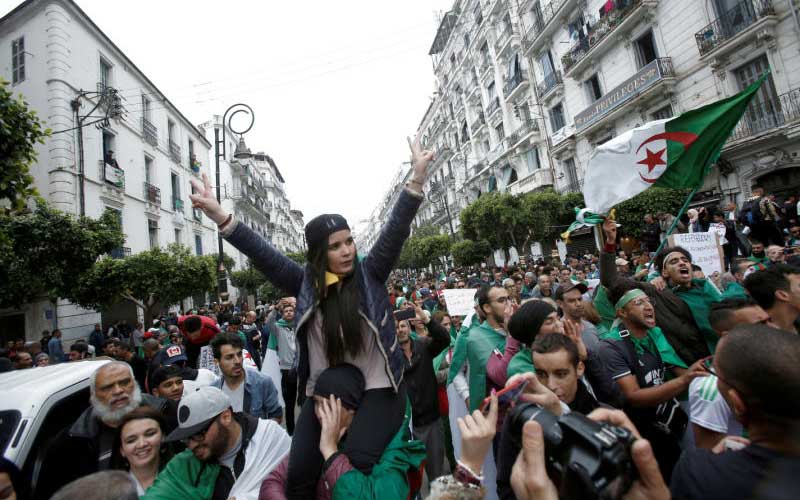×
The Standard e-Paper
Kenya’s Boldest Voice

Demonstrators hold flags and banners during peaceful anti-government protests in Algiers, Algeria, May 3, 2019. [AFP]
A vote on a new constitution in Algeria in November marks a turning point for a country that has been rocked by huge protests and political upheaval and which is now struggling to move on from the tumult.